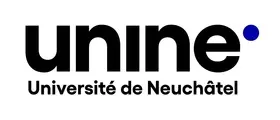
Growing Outside the Classroom
Extracurricular activities to help your economics career while at university
Read a summary using the INOMICS AI tool
Attending university can be a ton of fun, but it’s also supposed to prepare you for the next stage in your career. Normally, this involves a lot of studying. But breaks and hobbies are important to have, too.
Being involved in extracurriculars at university can make your time there more enjoyable by enabling you to meet friends, develop intellectually, and stay fit. You may not have considered it, but relevant hobbies for economists can even be advantages in your career development, too!
This article explores some suitable economics hobby ideas that you might find beneficial. Although lots of these suggestions will help you whatever career you decide to pursue, some may be a little more useful specifically for a career in economics.

Image credit: mego-studio on Freepik.com.
1. Debate team
Joining the debate team will give you the chance to practice your oral presentation, argumentation, and critical thinking skills – all of which will be a big asset to you in any economics job search. It's also a great way to practice your public speaking, which can be a helpful advantage in job interviews.
The ability to think through a position and support it with facts and logic is incredibly relevant to any research you do, too. On a fundamental level, research is posing a question, and either supporting or detracting from that question using facts and logic – just like debate! In economics research, the facts may need to be taken from a literature review or generated by your own econometric analysis, but the fundamentals are remarkably similar.
Debate will also help your communication skills, which are one of the most important soft skills to have, useful in all aspects of life. Being able to communicate your ideas and research effectively, or back up your economics findings in your career, is essential to being successful.
2. Student governance
Almost every university will have some kind of students' union or student council which you could join. Doing so shows future employers that you are responsible and engaged with political and practical issues. It also gives you the chance to make real changes to the way that your university is run.
Being a part of the students' union shows proactivity and leadership – that you have (productive) opinions and aren't afraid to voice them and fight for them. It implies you can speak your mind well in public, but also that you have a level of emotional empathy that enables you to listen to and appreciate – or at least respect – other points of view, even when they stand in direct contradiction with your own. Being involved in politics is also very useful for a job in economics, particularly policy-adjacent roles.

Image credit: Pixabay.
3. IT skills
Students may have the opportunity to assist university staff and/or students with technical problems. Often, universities employ student workers in IT help roles as a first line of defense against tech issues, helping other students on campus resolve computer problems – and escalating to a more seasoned professional for non-routine fixes.
These types of roles may also give you limited experience with coding, especially if your job includes performing functions for university webpages. Software proficiency is becoming increasingly important for economists, so demonstrating technical skill in this area is a bonus for most employers. Economists often need to use statistical software like R, SAS, Stata, and more for their work, and other tools like LaTeX will be useful in their careers. Showing employers that you have the skills needed to master new software tools quickly can be a big plus for your future job prospects.
4. Charity fundraising
Volunteering can be a rewarding experience and can help you grow a lot as a person. It can also be good for your career prospects, even beyond just showing your strength of character. If you want to work in a non-profit after university, or conduct research, then the ability to bring in funding (either by typical fundraisers or by securing grants) is a big requirement of many jobs. Showing that you've already been successful at fundraising while you were at university can put you at the head of the pack.
Moreover, charity fundraising can often give you the opportunity to travel. Plenty of charities work around the country and in other nations around the world. Travelling is one of the most rewarding things you can do, and employers like to see that their potential employees are well-rounded and have some life experience, which includes getting to know other cultures.
Aside from this, charity work is simply a noble thing to do and can show that you're emotionally intelligent and tolerant, two essential skills to have in an ever more diverse workplace. And, you might even benefit from that “warm glow” that stodgy economists talk about when describing altruistic behavior.

Image credit: Pixabay.
5. Sports teams
Sports teams are often a big part of university life, and most universities provide such a variety of sports clubs that almost everyone can find something that matches their interests and talents. These might offer the opportunity to travel around the country and occasionally the world, especially if you join something a little bit more niche like scuba diving.
And of course, sports are a great way to meet new people who could become lifelong friends, improve your teamwork and social skills, and stay fit while doing it. Best of all, from a career point of view, if you are head of a team and organizing matches, you have already shown your ability to lead a group which is a great skill to demonstrate.
6. Student newspaper
Student newspapers are great places to develop writing and editing skills, and to get used to a fast pace of work with tight deadlines. There are usually multiple areas of the newspaper you can work on, including design, editorial, and of course, writing and journalism.
Many newspapers have local news, political reports, and comment sections that deal with more sensitive issues. Even if you just write a few times rather than having a set role at the paper, it means you'll slowly build your portfolio of written work (which can be useful if you’re asked for non-academic writing samples), have some interesting things to put on your CV – and of course, seeing your name in print is always a wonderful feeling. Some university papers may even pay for your work.
Learning how to write well can be an essential skill if you're going to be communicating complicated economics ideas to non-economist audiences for whichever company or institute you're working for. Clear communication skills are an area that employers have already identified as important for economics graduates. Academic language is often impenetrable, so being able to show that you can present your ideas clearly and concisely outside of academic contexts is an invaluable skill.
7. Learning a language
Learning a language is one of the most productive things you can do in life. With language skills, you can work in an international company and be an extremely valuable asset to them, or you could even move into specialized economist roles that require multiple languages such as international politics, working as Chief of Staff for an international development project, or conducting research with economists in other regions.
It also means if you ever decide you want to live abroad, you have a head start; not only could you live, for example, in Germany, but many people report learning a third language easier once they have already learned a second. Reports have also come out that suggest learning a new language is one of the best favors you can do for your brain, with some studies suggesting it can even help prevent Alzheimer's.
Many universities' language courses are of a high standard – as one would expect – and as they are generally diverse, multicultural environments, with plenty of opportunities to practice with other students. If you want to learn a language, adding a few courses to your schedule during your studies is an excellent way to get started.
8. Entrepreneurship
For the really ambitious student, why not start your own business? It may not feel like it, but at university you'll be in an ideal environment with plenty of time and resources to develop your own ideas. That’s because adult life outside of uni is often much busier.
Often, universities have entrepreneur challenges where students pit their ideas against one another in order to win a certain pool of money that might even help them get the idea off the ground. They also often offer advice and support for students who have business ideas, host entrepreneurship courses, and of course, you might have the opportunity to befriend a business professor to tutor you.
Whether or not your business is successful, you'll learn a huge amount from trying to start a business before your peers have even got a foot into the workplace. Plus, it's a clear demonstration of your independence and self-motivation which employers will appreciate, especially if you plan to specialize in financial economics or wish to work in a policy analysis role related to business.

Image credit: Pixabay.
9. Chess Club or Go Club
The age-old games of chess and Go both have massive followings, chess traditionally in the West and Russia, and Go more traditionally in East Asia – although both are now played worldwide. Aptitude in either game can be seen as a sign of strategic thinking, dedication, and intelligence. So, if you already enjoy chess or Go, joining a university club for the hobby or doing well in tournaments can be a perk on your future economics resume. Both chess and Go can develop your critical thinking and ability to improvise and adapt successfully, too.
This idea extends to other strategic hobbies as well. Other strategy games likely help develop similar skills and show your acumen just like chess or Go can, but employers will likely only be impressed if they actually know what the game is.
Header image credit: Pixabay.
-
- Postdoc Job
- Posted 2 weeks ago
Research Associate (Post-doc, f/m) in the fields of applied econometric and distributional analysis
At LISER (Luxembourg Institute of Socio-Economic Research) in Esch-sur-Alzette, Luxembourg
-
- Conference
- Posted 3 weeks ago
Industrial Policies in a Globalized and Financialized World
Between 7 May and 8 May -
- PhD Candidate Job
- Posted 2 weeks ago
3 PhD positions at the Vienna Graduate School of Economics (VGSE)
At Vienna Graduate School of Economics - VGSE in Vienna, Austria












